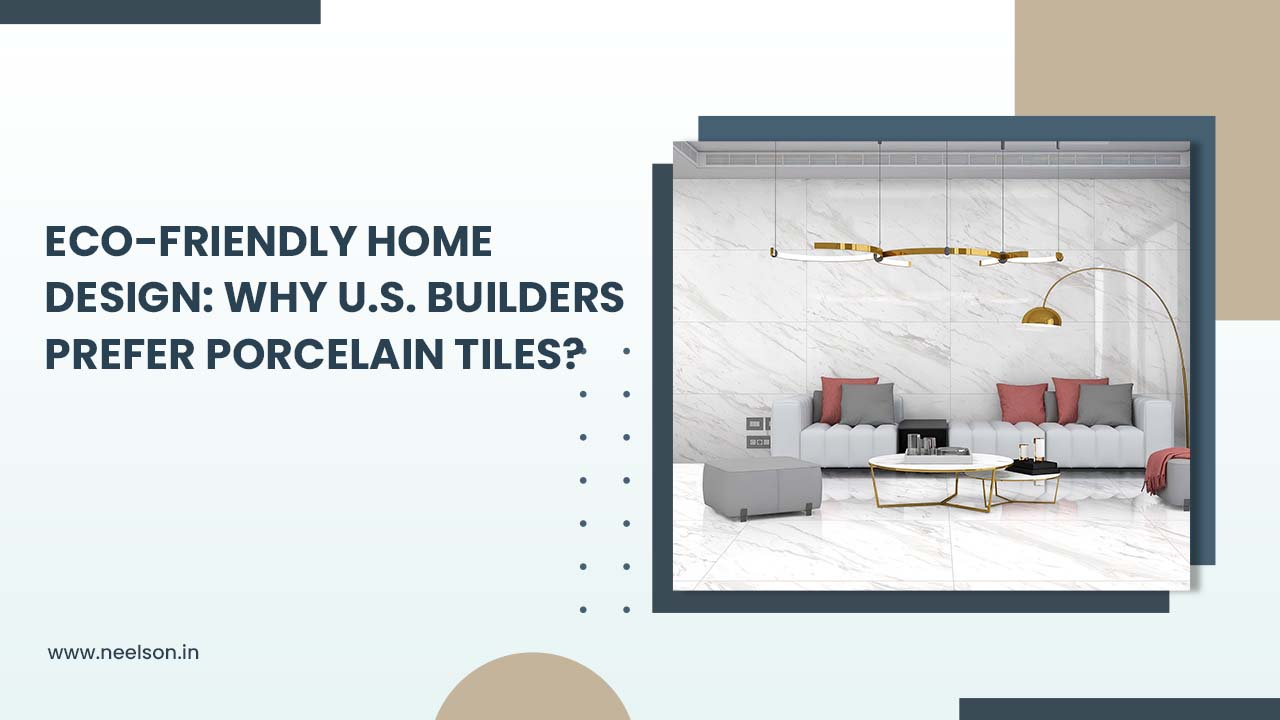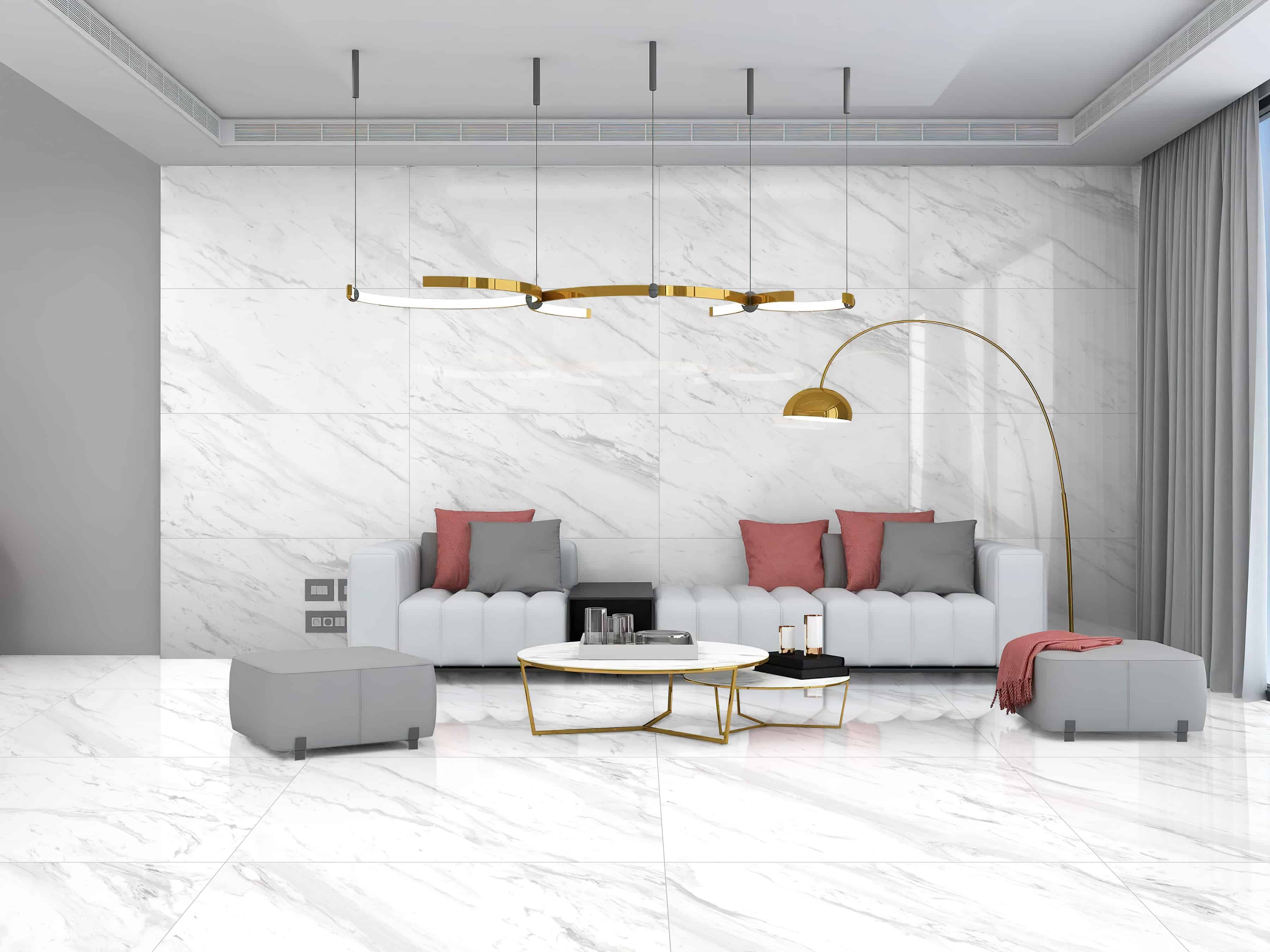
Eco-friendly house design has recently evolved from a fad to a need. Both builders and homeowners are looking for materials that support sustainable living objectives without sacrificing affordability, durability, or elegance. Porcelain tiles have been a popular choice among the many possibilities available, especially in the U.S. building business. But why do environmentally aware builders find these tiles so appealing? Let's examine how porcelain tiles transform green building techniques in more detail.
Eco-Friendly Composition of Porcelain Tiles
Clay, sand, and feldspar are the main natural elements of porcelain tiles. Because of this, they are a more environmentally friendly choice than alternatives to synthetic flooring. In addition, many industries purchase these raw materials locally, which boosts local economies and lowers transportation-related emissions.
Production-wise, porcelain tiles are produced with little waste. Recycling procedures are frequently used in modern tile companies, which use production leftovers to make new tiles. Some producers also recycle energy and water, improving the production process's sustainability overall.
Longevity and Durability Needed for Sustainability
One of the main reasons builders choose porcelain tiles is their remarkable endurance. These tiles are an excellent option for high-traffic indoor and outdoor areas because they are resilient to moisture, stains, wear, and scratches.
From a sustainability standpoint, durability means fewer replacements and less waste. Porcelain tiles can endure for decades with little care, in contrast to materials like vinyl or carpet that may require regular replacement. Over time, their durability lessens the environmental impact of flooring material production, transportation, and disposal.
Needs Low Maintenance
Using eco-friendly materials is only one aspect of eco-friendly living; another is the resources needed for upkeep. Because porcelain tiles simply need to be cleaned with water and gentle detergents, they are extremely low maintenance.
Porcelain tiles maintain their beauty with little work, unlike wooden floors that need refinished or carpets that require regular vacuuming. Their attractiveness to environmentally concerned builders and homeowners is further increased by the fact that they use fewer cleaning supplies and energy, which is in perfect harmony with sustainable living practices.
Thermal Properties and Energy Efficiency
Porcelain tiles are an essential component of energy-efficient home designs. Because of their high thermal conductivity, they are an excellent option for homes with radiant floor heating systems. They efficiently transfer and retain heat, lowering excessive heating energy use requirements.
Porcelain tiles reflect heat, keeping homes cooler in warmer climates and lowering the need for air conditioners. Because of their climatic flexibility, they are a flexible choice for builders all over the United States, which also helps with overall energy efficiency.
Versatile and Aesthetic
In-home design, aesthetics are just as vital as eco-friendliness. In this regard, porcelain tiles shine since they provide many design possibilities. Based on the homeowner's preference, porcelain tiles can perfectly mimic the appearance of wood, real stone, or complex patterns.
Due to advancements in printing technology, the potential for original and imaginative designs has increased. Builders value the ability to offer environmentally friendly solutions to clients without compromising aesthetic appeal.

Indoor Air Quality and Health Benefits
Porcelain tiles are inert, meaning they don't release any allergens or volatile organic compounds (VOCs) into the air as certain other flooring materials do. Because of this, they are the best option for interior environments, especially for households with members who have respiratory or allergy issues.
Porcelain tiles are a great option for environmentally conscious projects. They allow builders to achieve green building certifications like LEED (Leadership in Energy and Environmental Design) by using materials that improve indoor air quality.
Cost-effective As Time Goes
Porcelain tiles may be more expensive initially than other flooring options, but they are a wise investment in the long run due to their affordability. Their low maintenance needs lower ongoing costs, and their endurance means fewer replacements.
These elements result in increased value for customers of environmentally conscious builders in the United States. Homeowners value materials that save money over time and are in accordance with their environmental principles.
Recycling Benefits
One significant benefit of a product's whole lifecycle is that porcelain tiles are 100% recyclable. When they reach the end of their useful lives, they can be recycled into new materials or utilized for building projects like road bases, which will cut down on landfill waste.
Materials like porcelain tiles promoting the circular economy can benefit builders who want to build zero-waste houses or adhere to stringent sustainability guidelines.
Supports U.S Manufacturers and Green Certifications
Due to the growing demand for environmentally friendly building materials, tile makers in the United States have adopted greener techniques. Nowadays, many porcelain tile brands adhere to stringent environmental certifications and regulations.
In addition to lowering their projects' carbon footprint, builders can promote sustainable business practices in the United States by preferring locally produced, certified items.
Climate Challenge Resilience
Due to increased awareness of climate change, resilience is highly considered in home design. Extreme heat, moisture, and even fire can't harm porcelain tiles, which is why they are perfect for residences in areas vulnerable to hurricanes, floods, and wildfires.
Builders committed to building environmentally responsible, disaster-resistant homes know porcelain tiles' unparalleled ability to withstand such difficulties.
Conclusion
Porcelain tiles are becoming popular among American builders, emphasizing their importance to environmentally friendly home design. Because of their natural composition, recyclable nature, energy efficiency, and aesthetic adaptability, porcelain tiles provide the ideal fusion of practicality, sustainability, and style.
Green living is also becoming important to homeowners, so builders must adjust by selecting materials that reflect these ideals. More than just a fad, porcelain tiles are an example of how sustainability and innovation can coexist to build environmentally friendly homes that are also aesthetically pleasing.
Neelson Ceramics is a known manufacturer of porcelain tiles in India. We are pleased to provide a wide selection of porcelain tiles that adhere to the strictest sustainability and quality guidelines. As a well-established porcelain tiles exporter, our tiles are made to fit your demands, whether you're a homeowner searching for long-lasting and fashionable flooring or a contractor hoping to improve your environmentally friendly projects. Look at our selection to start building a more beautiful, greener future.
